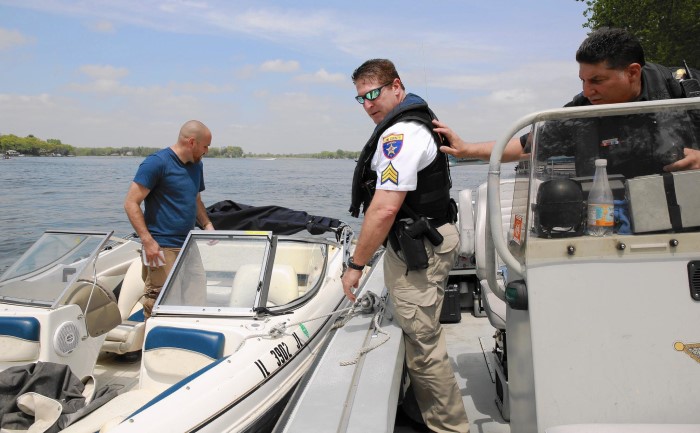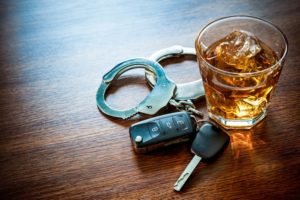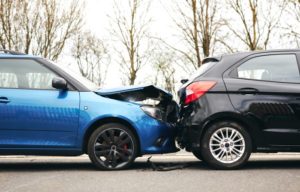
Boating Under the Influence (BUI) laws refer to the laws that prohibit operating a boat or watercraft while under the influence of alcohol or drugs. The specific BUI laws vary from state to state in the US, but most states have established a blood alcohol concentration (BAC) limit of 0.08% or less while operating a boat. Penalties for BUI can include fines, imprisonment, and suspension or revocation of boating privileges. It is important to note that alcohol and drug use can significantly impair judgement, balance and reaction time, making it dangerous to operate a boat.
How Is “Boating Under the Influence” Defined?
“Boating Under the Influence” (BUI) is defined as operating a boat or watercraft while under the influence of alcohol or drugs, to the extent that one’s ability to operate the vessel is impaired. The specific criteria for BUI vary by jurisdiction, but most states have established a blood alcohol concentration (BAC) limit of 0.08% or less while operating a boat, similar to the limit for driving a motor vehicle. Additionally, a BUI charge can also be based on other evidence of impaired boating ability, such as erratic behavior, slurred speech, and poor performance on field sobriety tests.
BAC limits
The blood alcohol concentration (BAC) limit for boating under the influence (BUI) laws varies by jurisdiction. In the United States, the legal BAC limit for operating a boat is typically 0.08% or lower, which is the same limit as for driving a motor vehicle in most states. However, some states have established lower BAC limits for boating, as boating while under the influence of alcohol or drugs can be especially dangerous due to the added risks of being on the water. In some cases, a BUI charge can be based on evidence of impairment even if the operator’s BAC is below the legal limit.
Under the influence
“Under the influence” means being affected by alcohol or drugs to the extent that one’s physical or mental abilities are impaired. In the context of boating under the influence (BUI) laws, “under the influence” refers to operating a boat or watercraft while impaired due to the use of alcohol or drugs. The level of impairment can vary based on factors such as the type and amount of substance consumed, the individual’s tolerance, and the presence of other medical or physiological factors. Most states have established a blood alcohol concentration (BAC) limit of 0.08% or less while operating a boat, but a BUI charge can also be based on other evidence of impaired boating ability, such as erratic behavior, slurred speech, and poor performance on field sobriety tests.
Boats and watercraft
Boats and watercraft are vessels used for transportation or recreation on water. They come in various sizes and types, including powerboats, sailboats, personal watercraft (such as jet skis), and canoes or kayaks. In the context of boating under the influence (BUI) laws, the term “boats and watercraft” refers to any type of vessel that is operated on water and subject to BUI regulations. The operation of boats and watercraft while under the influence of alcohol or drugs can be extremely dangerous due to the added risks of being on the water, and is prohibited by law in most jurisdictions. Penalties for BUI can include fines, imprisonment, and suspension or revocation of boating privileges.
“Operating” or “being in physical control”
“Operating” or “being in physical control” of a boat or watercraft refers to having the ability to direct the movement of the vessel. In the context of boating under the influence (BUI) laws, “operating” or “being in physical control” includes not only actively driving the boat, but also being in a position to control the vessel, such as sitting in the driver’s seat with the keys in the ignition, even if the boat is not moving. This definition is intended to encompass any situation in which an individual has the ability to control the boat while under the influence of alcohol or drugs, making it illegal and potentially dangerous. The specific definition of “operating” or “being in physical control” can vary by jurisdiction.
Penalties for BUI offenders
Penalties for a boating under the influence (BUI) offender can vary depending on the jurisdiction and the circumstances of the offense, but can include some or all of the following:
- Fines: Monetary penalties can range from a few hundred to several thousand dollars.
- Imprisonment: BUI can result in jail time, ranging from a few days to several years, depending on the severity of the offense and the jurisdiction.
- Suspension or revocation of boating privileges: An offender’s ability to operate a boat can be suspended or revoked for a specified period of time, or permanently.
- Community service: An offender may be ordered to perform community service as part of their sentence.
- Alcohol or drug education classes: An offender may be required to complete education or treatment programs related to alcohol or drug use.
- Installation of an ignition interlock device: An offender may be required to install an ignition interlock device, which prevents a boat from starting if the operator’s BAC is above a certain level.
These penalties are intended to serve as a deterrent against operating a boat while under the influence of alcohol or drugs and to promote safety on the water. It is important to note that BUI can also result in civil liability in the event of an accident causing injury or property damage.
Is a BUI the same as a DUI in CA?
In California, a boating under the influence (BUI) offense is similar to a driving under the influence (DUI) offense, but there are some important differences. Both BUIs and DUIs involve operating a vehicle while under the influence of alcohol or drugs, but DUIs apply to motor vehicles on land and BUIs apply to boats and other vessels on water. The legal definitions, blood alcohol concentration (BAC) limits, and penalties for BUIs and DUIs are generally similar, but there may be slight variations in each state. In California, a BUI is considered a separate and distinct offense from a DUI, and can result in separate criminal charges and penalties. However, a BUI conviction can be used as a prior offense in a subsequent DUI case, and may result in increased penalties for the subsequent DUI.
What is the penalty for BUI in California?
The penalties for a boating under the influence (BUI) offense in California can include fines, imprisonment, and suspension or revocation of boating privileges. The specific penalties depend on the circumstances of the case, including the offender’s blood alcohol concentration (BAC) and any prior BUIs or DUIs on their record.
Penalties for a first-time BUI offense can include:
- Fines: Monetary penalties can range from $390 to $1,000, plus additional fees and assessments.
- Imprisonment: A first-time BUI offender can face a maximum sentence of 6 months in county jail.
- Suspension or revocation of boating privileges: An offender’s ability to operate a boat can be suspended for a specified period of time, typically between 6 months and 3 years.
Penalties for repeat or high BAC BUIs can be more severe, and can include longer jail terms, higher fines, and longer suspensions or revocations of boating privileges. In addition, a BUI conviction can result in increased insurance rates and other collateral consequences, and can also result in civil liability in the event of an accident causing injury or property damage. It is important to consult with an attorney for a more detailed explanation of the penalties for a specific BUI case in California.
How do you get out of a BUI?
Getting out of a boating under the influence (BUI) charge can be difficult, as it is a serious offense that is taken seriously by law enforcement and the courts. However, there are several defenses or mitigating factors that a person charged with a BUI may raise to contest the charges or reduce the penalties. Some of the ways to get out of a BUI charge include:
- Challenging the legality of the stop or arrest: An individual may challenge the stop or arrest on the basis that it was not legally justified, such as if the officer did not have probable cause to stop the boat.
- Challenging the accuracy of the BAC test: An individual may challenge the accuracy of the blood alcohol concentration (BAC) test on the basis of improper administration, calibration, or maintenance of the testing equipment.
- Raising the defense of medical conditions: An individual may raise the defense of medical conditions, such as diabetes or acid reflux, that can affect the results of a BAC test.
- Plea bargaining: In some cases, an individual may negotiate a plea bargain with the prosecution, which involves pleading guilty to a lesser charge in exchange for reduced penalties.
- Participating in rehabilitation or education programs: An individual may participate in rehabilitation or education programs related to alcohol or drug use as part of their sentence or as a condition of probation.
It is important to keep in mind that these defenses may not be effective in all cases and that the specific circumstances of each BUI case will impact the success of these defenses. It is also important to consult with an attorney for a more detailed explanation of the defenses and options for a specific BUI case.
Does a boating DUI affect your driver’s license?
A boating under the influence (BUI) conviction can affect your driver’s license in some cases, depending on the state where the offense occurred and the specific circumstances of the case.
In some states, a BUI conviction can result in the suspension or revocation of a person’s boating privileges, which can include the right to operate any type of watercraft, including personal watercraft, sailboats, and motorboats. However, this suspension or revocation may not apply to driving a motor vehicle on land.
In other states, a BUI conviction can result in the suspension or revocation of a person’s driver’s license, in addition to their boating privileges. This can occur if the state has laws that provide for a reciprocal suspension or revocation of driving privileges for BUI convictions, or if the individual is convicted of a DUI as well as a BUI.
In some cases, a BUI conviction can also result in increased insurance rates and other collateral consequences, such as difficulty finding employment or obtaining loans.
It is important to consult with an attorney or the state licensing agency for a more detailed explanation of the potential impacts of a BUI conviction on a person’s driver’s license and other privileges.
Boating while intoxicated jail time
The jail time for a boating under the influence (BUI) offense can vary depending on the specific circumstances of the case, including the offender’s blood alcohol concentration (BAC) and any prior BUIs or DUIs on their record.
Penalties for a first-time BUI offense can include:
- Imprisonment: A first-time BUI offender can face a maximum sentence of 6 months in county jail.
Penalties for repeat or high BAC BUIs can be more severe, and can include longer jail terms. In some states, a BUI conviction can result in mandatory minimum jail sentences for repeat offenders or for those with high BAC levels. The specific jail time for a BUI conviction can also depend on the state where the offense occurred and the specific laws in that state.
It is important to keep in mind that a BUI conviction can result in other penalties, such as fines, suspension or revocation of boating privileges, and increased insurance rates. It is also important to consult with an attorney for a more detailed explanation of the jail time and other penalties for a specific BUI case.
BUI Lawyers
A BUI (boating under the influence) lawyer is a criminal defense attorney who specializes in representing individuals charged with BUIs. Hiring a BUI lawyer can be beneficial in several ways, including:
- Understanding the specific BUI laws in your state: A BUI lawyer will be familiar with the specific BUI laws and regulations in your state, including the penalties and the process for challenging the charges.
- Building a strong defense: A BUI lawyer can review the facts of your case, gather evidence, and build a strong defense to contest the charges.
- Negotiating a plea bargain: In some cases, a BUI lawyer may be able to negotiate a plea bargain with the prosecution, which involves pleading guilty to a lesser charge in exchange for reduced penalties.
- Representing you in court: A BUI lawyer can represent you in court and present your case to the judge or jury.
- Protecting your rights: A BUI lawyer can ensure that your rights are protected throughout the legal process and that you are not taken advantage of by the prosecution or the court.
It is important to keep in mind that not all BUI lawyers are the same, and that you should choose a BUI lawyer who has experience handling BUI cases and who you feel comfortable working with. It is also important to consult with an attorney as soon as possible after being charged with a BUI, as early intervention can have a significant impact on the outcome of the case.
Conclusion
boating under the influence (BUI) is a serious offense that can result in significant penalties, including fines, imprisonment, and the suspension or revocation of boating privileges. The specific penalties for a BUI offense can vary depending on the state where the offense occurred, the offender’s blood alcohol concentration (BAC), and any prior BUIs or DUIs on their record.
Hiring a BUI lawyer can be beneficial in understanding the specific BUI laws in your state, building a strong defense, negotiating a plea bargain, representing you in court, and protecting your rights. It is important to choose a BUI lawyer who has experience handling BUI cases and who you feel comfortable working with.
It is also important to remember that boating while under the influence of alcohol or drugs is not only illegal, but it is also dangerous and puts the lives of yourself and others at risk. Always designate a sober operator, obey boating laws and regulations, and never boat under the influence.







